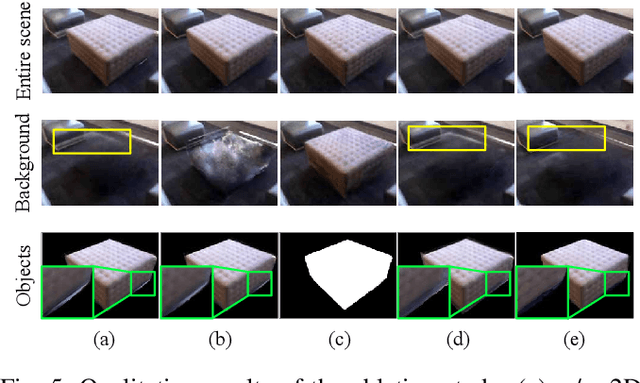Zhide Zhong
Embodied Robot Manipulation in the Era of Foundation Models: Planning and Learning Perspectives
Dec 28, 2025Abstract:Recent advances in vision, language, and multimodal learning have substantially accelerated progress in robotic foundation models, with robot manipulation remaining a central and challenging problem. This survey examines robot manipulation from an algorithmic perspective and organizes recent learning-based approaches within a unified abstraction of high-level planning and low-level control. At the high level, we extend the classical notion of task planning to include reasoning over language, code, motion, affordances, and 3D representations, emphasizing their role in structured and long-horizon decision making. At the low level, we propose a training-paradigm-oriented taxonomy for learning-based control, organizing existing methods along input modeling, latent representation learning, and policy learning. Finally, we identify open challenges and prospective research directions related to scalability, data efficiency, multimodal physical interaction, and safety. Together, these analyses aim to clarify the design space of modern foundation models for robotic manipulation.
FlowVLA: Thinking in Motion with a Visual Chain of Thought
Aug 25, 2025Abstract:Many Vision-Language-Action (VLA) models rely on an internal world model trained via next-frame prediction. This approach, however, struggles with physical reasoning as it entangles static appearance with dynamic motion, often resulting in implausible visual forecasts and inefficient policy learning. To address these limitations, we introduce the Visual Chain of Thought (Visual CoT): a pre-training framework that encourages a model to reason about how a scene evolves before predicting what it will look like. We instantiate this principle in FlowVLA, which predicts a future frame ($v_{t+1}$) only after generating an intermediate optical flow representation ($f_t$) that encodes motion dynamics. This ``$v_t \rightarrow f_t \rightarrow v_{t+1}$'' reasoning process is implemented within a single autoregressive Transformer, guiding the model to learn disentangled dynamics. As a result, FlowVLA produces coherent visual predictions and facilitates more efficient policy learning. Experiments on challenging robotics manipulation benchmarks demonstrate state-of-the-art performance with substantially improved sample efficiency, pointing toward a more principled foundation for world modeling. Project page: https://irpn-lab.github.io/FlowVLA/
Accelerating Vision-Language-Action Model Integrated with Action Chunking via Parallel Decoding
Mar 04, 2025Abstract:Vision-Language-Action (VLA) models demonstrate remarkable potential for generalizable robotic manipulation. The performance of VLA models can be improved by integrating with action chunking, a critical technique for effective control. However, action chunking linearly scales up action dimensions in VLA models with increased chunking sizes. This reduces the inference efficiency. To tackle this problem, we propose PD-VLA, the first parallel decoding framework for VLA models integrated with action chunking. Our framework reformulates autoregressive decoding as a nonlinear system solved by parallel fixed-point iterations. This approach preserves model performance with mathematical guarantees while significantly improving decoding speed. In addition, it enables training-free acceleration without architectural changes, as well as seamless synergy with existing acceleration techniques. Extensive simulations validate that our PD-VLA maintains competitive success rates while achieving 2.52 times execution frequency on manipulators (with 7 degrees of freedom) compared with the fundamental VLA model. Furthermore, we experimentally identify the most effective settings for acceleration. Finally, real-world experiments validate its high applicability across different tasks.
ASSIST: Interactive Scene Nodes for Scalable and Realistic Indoor Simulation
Nov 10, 2023



Abstract:We present ASSIST, an object-wise neural radiance field as a panoptic representation for compositional and realistic simulation. Central to our approach is a novel scene node data structure that stores the information of each object in a unified fashion, allowing online interaction in both intra- and cross-scene settings. By incorporating a differentiable neural network along with the associated bounding box and semantic features, the proposed structure guarantees user-friendly interaction on independent objects to scale up novel view simulation. Objects in the scene can be queried, added, duplicated, deleted, transformed, or swapped simply through mouse/keyboard controls or language instructions. Experiments demonstrate the efficacy of the proposed method, where scaled realistic simulation can be achieved through interactive editing and compositional rendering, with color images, depth images, and panoptic segmentation masks generated in a 3D consistent manner.
MARS: An Instance-aware, Modular and Realistic Simulator for Autonomous Driving
Jul 27, 2023Abstract:Nowadays, autonomous cars can drive smoothly in ordinary cases, and it is widely recognized that realistic sensor simulation will play a critical role in solving remaining corner cases by simulating them. To this end, we propose an autonomous driving simulator based upon neural radiance fields (NeRFs). Compared with existing works, ours has three notable features: (1) Instance-aware. Our simulator models the foreground instances and background environments separately with independent networks so that the static (e.g., size and appearance) and dynamic (e.g., trajectory) properties of instances can be controlled separately. (2) Modular. Our simulator allows flexible switching between different modern NeRF-related backbones, sampling strategies, input modalities, etc. We expect this modular design to boost academic progress and industrial deployment of NeRF-based autonomous driving simulation. (3) Realistic. Our simulator set new state-of-the-art photo-realism results given the best module selection. Our simulator will be open-sourced while most of our counterparts are not. Project page: https://open-air-sun.github.io/mars/.
 Add to Chrome
Add to Chrome Add to Firefox
Add to Firefox Add to Edge
Add to Edge